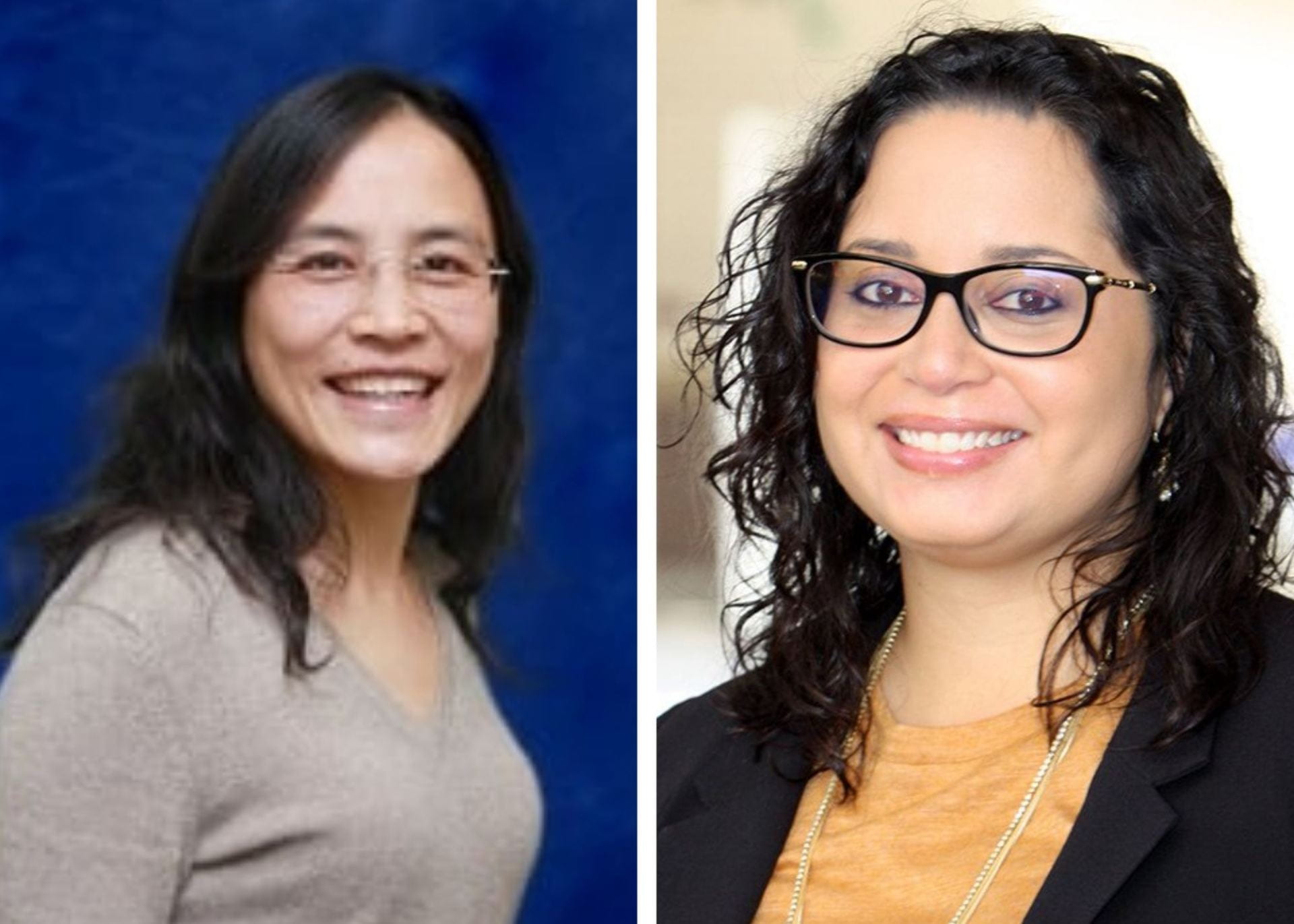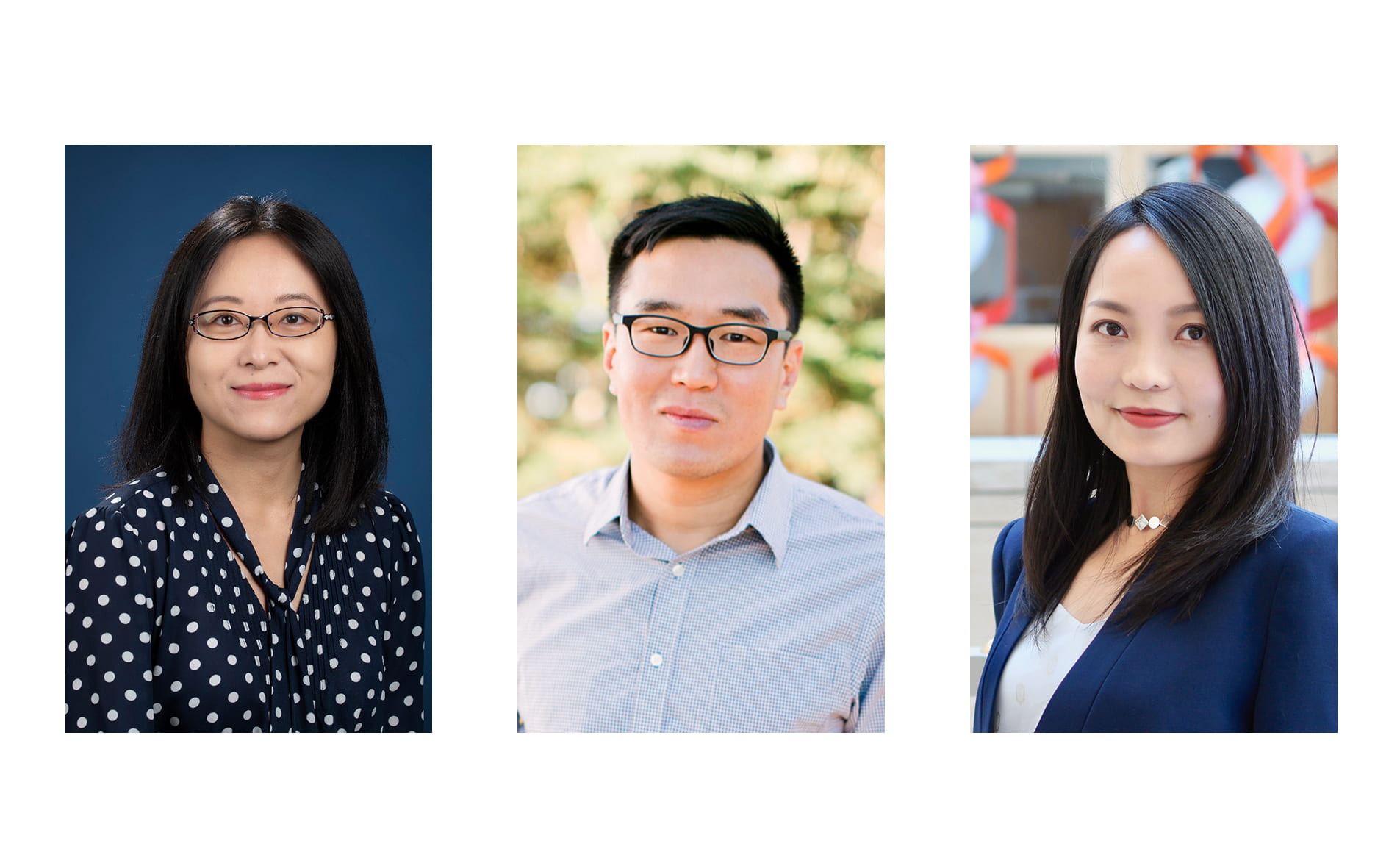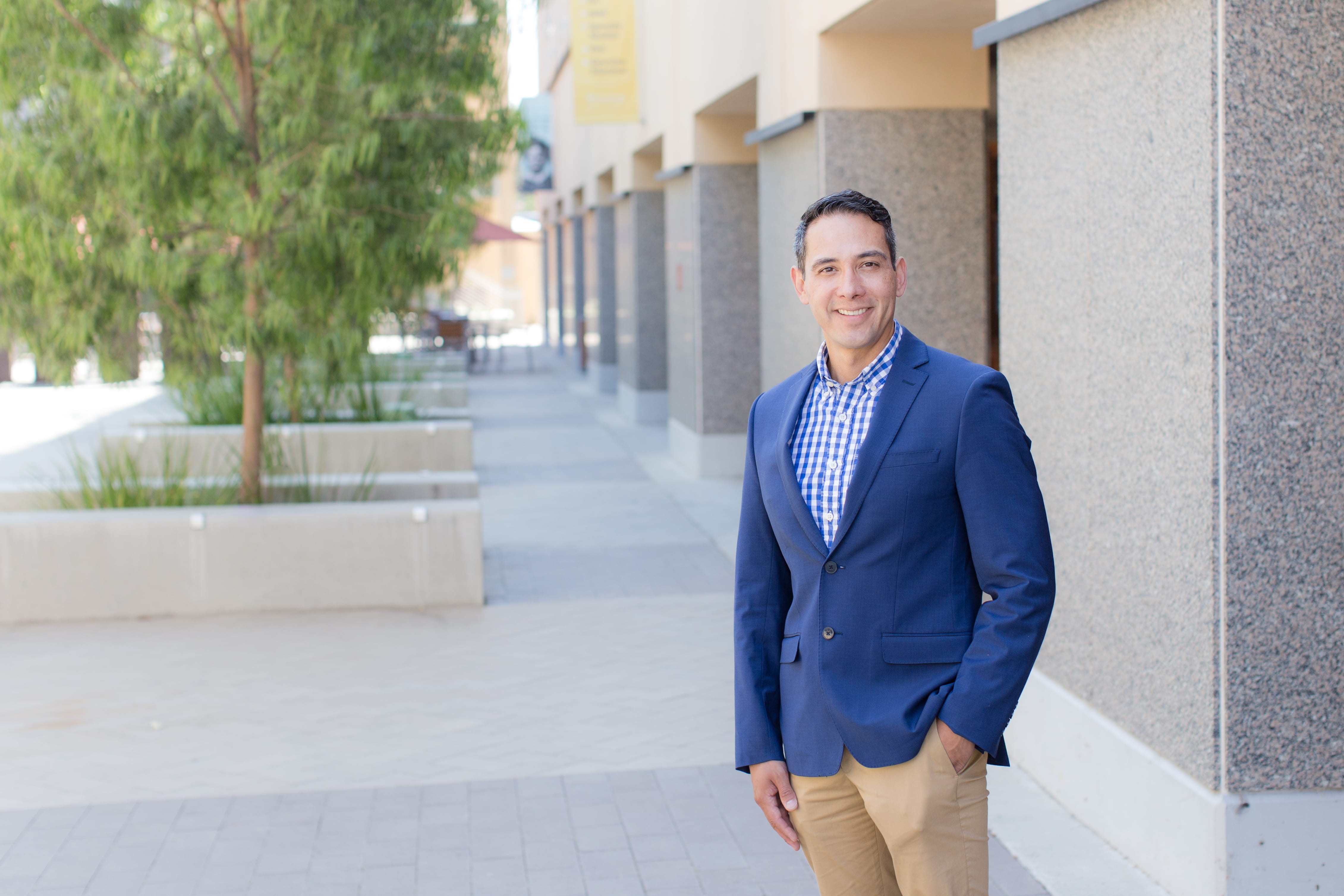UCI Public Health launches Center for Environmental Health Disparities Research
Center will be a regional leader in promoting health equity and environmental justice through public health research and practice

Irvine, Calif., Oct. 13, 2021 — The University of California, Irvine Program in Public Health has launched the Center for Environmental Health Disparities Research. The center is dedicated to addressing environmental justice through community-based research and promotion of equitable environmental health policies locally and nationally.
UCI Public Health professors Jun Wu and Alana M.W. LeBrón will direct the center. Wu serves as a professor in the Department of Environmental and Occupational Health and has an extensive background in population-based research on environmental exposures and environmental epidemiology, specifically for air pollution, climate change, and environmental justice issues. LeBrón, in addition to serving as an assistant professor in the Department of Health, Society & Behavior, also holds an appointment at the UCI School of Social Sciences as an assistant professor of Chicano/Latino Studies. Her research primarily focuses on the role of structural racism in shaping health inequities that affect low-income communities of color and studies community-level interventions designed to mitigate the effect of structural racism on health.
Both Wu and LeBrón have spent much of their careers working directly with community partners to enhance understanding of inequities in both environmental exposures and health outcomes, as well as the contribution of policy and systems to the inequity issues aiming to inform interventions to reducing inequities among historically marginalized groups.
Established as a result of the UCI Black Thriving Initiative Faculty Cluster Hiring Program outcome, CEHDR will build upon the university’s ongoing efforts to expand the base of scholarship focused on the experiences of black, African American, and Caribbean communities as they relate to environmental justice.
“UCI has been building up to this moment,” LeBrón said. “Environmental and climate-related research have long been areas of expertise at the university. We reached a turning point in the past year where we had a critical mass of people interested in enhancing environmental justice research, plus last year’s launch of the UCI Black Thriving Initiative that helped make the creation of CEHDR possible.”
In keeping with the interdisciplinary approach championed by the University of California, the center will engage myriad disciplines beyond public health to solve complex issues in environmental justice, including engineering, urban planning, medicine, nursing, pharmacy practice and anthropology.
“We look forward to bringing faculty, staff and students from schools across the university together to address environmental health issues,” Wu said. “The center will play a critical role in developing collaborations on and beyond campus for future research and education.”
The driving force behind the center’s work is a belief and understanding that working directly with communities is critical to designing effective public health interventions that bridge the gaps in environmental health inequities. The work will extend beyond campus and into the local communities with a goal of developing new community partnerships and building upon the successes of existing ones. Community partners will not only share CEHDR’s mission and vision, but also have valuable expertise to contribute as they are directly impacted by many of the environmental health issues the center will address.
CEDHR plans to assemble a community advisory board following a process of engaging in one-on-one conversations with community leaders, who will provide feedback on the issues the center should focus on. In addition to forming the board, CEHDR will also host seminars and events throughout the year to initiate broader conversations about environmental justice on campus and beyond.
Wu and LeBrón are joined by an extraordinary group of scholars, including:
- Adeyemi Adeleye, assistant professor, civil and environmental engineering, Henry Samueli School of Engineering
- Scott Bartell, professor, environmental and occupational health, Program in Public Health
- Dawn Bounds, assistant professor, nursing, Sue & Bill Gross School of Nursing
- Russ Detwiler, associate professor, civil and environmental engineering, Henry Samueli School of Engineering
- Kim Fortun, professor, anthropology, School of Social Sciences
- Marnie Granados, general pediatrician, CHOC Medical Group
- Cindy Haq, clinical professor and chair, family medicine, School of Medicine
- Douglas Houston, associate professor, urban planning and public policy, School of Social Ecology
- Sunny Jiang, professor and chair, civil & environmental engineering, Henry Samueli School of Engineering
- Cynthia Lakon, associate professor and chair, health, society & behavior, Program in Public Health
- Candice Taylor Lucas, associate clinical professor, pediatrics, School of Medicine
- Christopher Olivares, assistant professor, civil & environmental engineering, Henry Samueli School of Engineering
- Abigail Reyes, director, Community Resilience Projects
- David Richardson, professor, environmental & occupational health, Program in Public Health
- Diego Rosso, professor, civil & environmental engineering, Henry Samueli School of Engineering
- Miryha Gould Runnerstrom, associate professor of teaching, health society & behavior, Program in Public Health
- Sora Park Tanjasiri, professor, epidemiology and biostatistics, Program in Public Health
- Verónica Vieira, professor and chair, environmental and occupational health, Program in Public Health
- Cheryl Wisseh, assistant professor, clinical pharmacy practice, School of Pharmacy & Pharmaceutical Science
- Ursula Worsham, diversity officer and executive director, Division of Student Support, School of Medicine
- Salvador Zárate, assistant professor, anthropology, School of Social Sciences
“UCI’s mission to promote research, education, and public service is really coming alive with the launch of this important center,” said Bernadette Boden-Albala, director and founding dean of the UCI Program in Public Health. “And our efforts are strengthened by community partnerships. We simply couldn’t do this without the input and expertise of our community partners who share our vision of a more sustainable, equitable future for all.”
About the Program in Public Health and future School of Population & Public Health: UCI Public Health is dedicated to the achievement of health equity for all populations through teaching, research, service and public health practice locally and globally. Championing the principles of evidence-based public health science, the program aspires to understand and impact population level social, biological, and environmental determinants of health and well-being. Drawing from the diverse expertise of its faculty, it aims to educate the future workforce of California and beyond through exceptional programs and experiential learning opportunities.
About the UCI’s Brilliant Future campaign: Publicly launched on October 4, 2019, the Brilliant Future campaign aims to raise awareness and support for UCI. By engaging 75,000 alumni and garnering $2 billion in philanthropic investment, UCI seeks to reach new heights of excellence in student success, health and wellness, research and more. The planned School in Population and Public Health plays a vital role in the success of the campaign. Learn more by visiting https://brilliantfuture.uci.edu/school-of-population-and-public-health/.
About the University of California, Irvine: Founded in 1965, UCI is the youngest member of the prestigious Association of American Universities and is ranked among the nation’s top 10 public universities by U.S. News & World Report. The campus has produced three Nobel laureates and is known for its academic achievement, premier research, innovation and anteater mascot. Led by Chancellor Howard Gillman, UCI has more than 36,000 students and offers 224 degree programs. It’s located in one of the world’s safest and most economically vibrant communities and is Orange County’s second-largest employer, contributing $7 billion annually to the local economy and $8 billion statewide. For more on UCI, visit www.uci.edu.
Media access: Radio programs/stations may, for a fee, use an on-campus ISDN line to interview UCI faculty and experts, subject to availability and university approval. For more UCI news, visit news.uci.edu. Additional resources for journalists may be found at communications.uci.edu/for-journalists.


